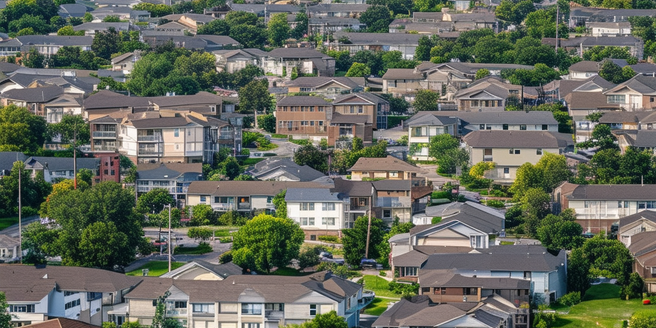Understanding the Need for Affordable Housing
The lack of affordable housing in many neighborhoods across the country has resulted in unprecedented levels of homelessness. This grave situation requires immediate intervention from various stakeholders, including the government, private sector and non-profit organizations. Rapid urbanization and rising property prices are further exacerbating the issue. Families are being displaced, with nowhere to call home. This deepening crisis of homelessness affects everyone, not just those who are homeless. It’s a social problem that negatively impacts local economies, education, healthcare systems and more. Providing affordable housing is a critical step towards solving this issue, bringing about stability and sense of community. Sustainable communities are built when everyone has access to fair and affordable housing. The need has never been greater.
What Constitutes Affordable Housing?
Affordable housing is a term that refers to housing units that are affordable by that section of the society whose income is below the median household income. As a significant socio-economic problem, it has prompted rigorous debates amongst policy makers and stakeholders. It involves creating a balanced housing marketplace that includes diverse options for all income levels. Furthermore, it’s crucial that these housing options are accessible and dispersed throughout various urban and rural areas to decrease socio-economic division. Affordable housing shouldn’t compromise quality or safety. It often involves subsidies and special financing programs to make rent more manageable. The solution to affordable housing involves building homes that are financially within reach of low to moderate income families.
The Impact of Affordable Housing on Communities
Affordable housing initiatives have the potential to transform communities. They increase stability for low-income families, which has been shown to improve children’s educational outcomes. Consequently, these improvements in education can lead to broader benefits for the community such as increased graduation rates and better job opportunities. Affordable housing reduces overcrowding and lessens the strain on local resources. Accordingly, these initiatives can even lower crime rates, as secure housing environments reduce desperation caused by homelessness. It fosters a sense of belonging and community participation. With a stable home, individuals can focus on pursuing careers, supporting their families, contributing to vibrant economies and establishing roots in their communities. Affordable housing is more than just about homes, it’s about revitalizing communities.
Strategies for Promoting Affordable Housing
There are numerous methods to promote affordable housing, often including government and local, community-led initiatives. Strategies could range from incentivizing developers through policy, which could involve tax benefits or zoning permissions to make construction of affordable homes an appealing business consideration, consequently increasing their availability for lower-income households.
Another approach is deploying subsidies to ease the financial load of renting or buying for those in need. These can include direct assistance or reduced existing rates, leading to stable, affordable homeownership for various socioeconomic households.
Community land trusts can provide a pathway for communities to manage the land and buildings within their locales. This ensures properties remain affordable for future residents, promoting diverse and sustainable communities.
Promoting improved building regulations like the use of economical construction materials can make affordable homes more achievable and add architectural diversity within communities.
Lastly, each community has unique needs in terms of affordable housing such as rental units or family homes. Consequently, it’s crucial to explore and promote innovative, custom solutions pertaining to design, policy, construction and social programs. Aligning these strategies with the needs of each community can lead toward a future where affordable housing is accessible to all.
Success Stories in Revitalizing Communities Through Affordable Housing
Affordable housing initiatives across the country have been instrumental in revitalizing struggling communities, turning them into areas of growth and prosperity. These dramatic transformations are testament to the power of affordable housing as a tool not only for shelter but also for community development. More than tales of transformation, these success stories serve as reminders of the latent potential in our communities, highlighting the significant value of accessible housing. Affordable housing doesn’t just give people homes—it reshapes community dynamics, fosters social inclusion, and enhances overall quality of life. Instead of simply highlighting past struggles, these stories show what can be achieved through shared efforts and effective utilization of tools like affordable housing. They affirm our capacity to make an impactful difference in our communities, even in adversity, shaping the destiny for the better.



